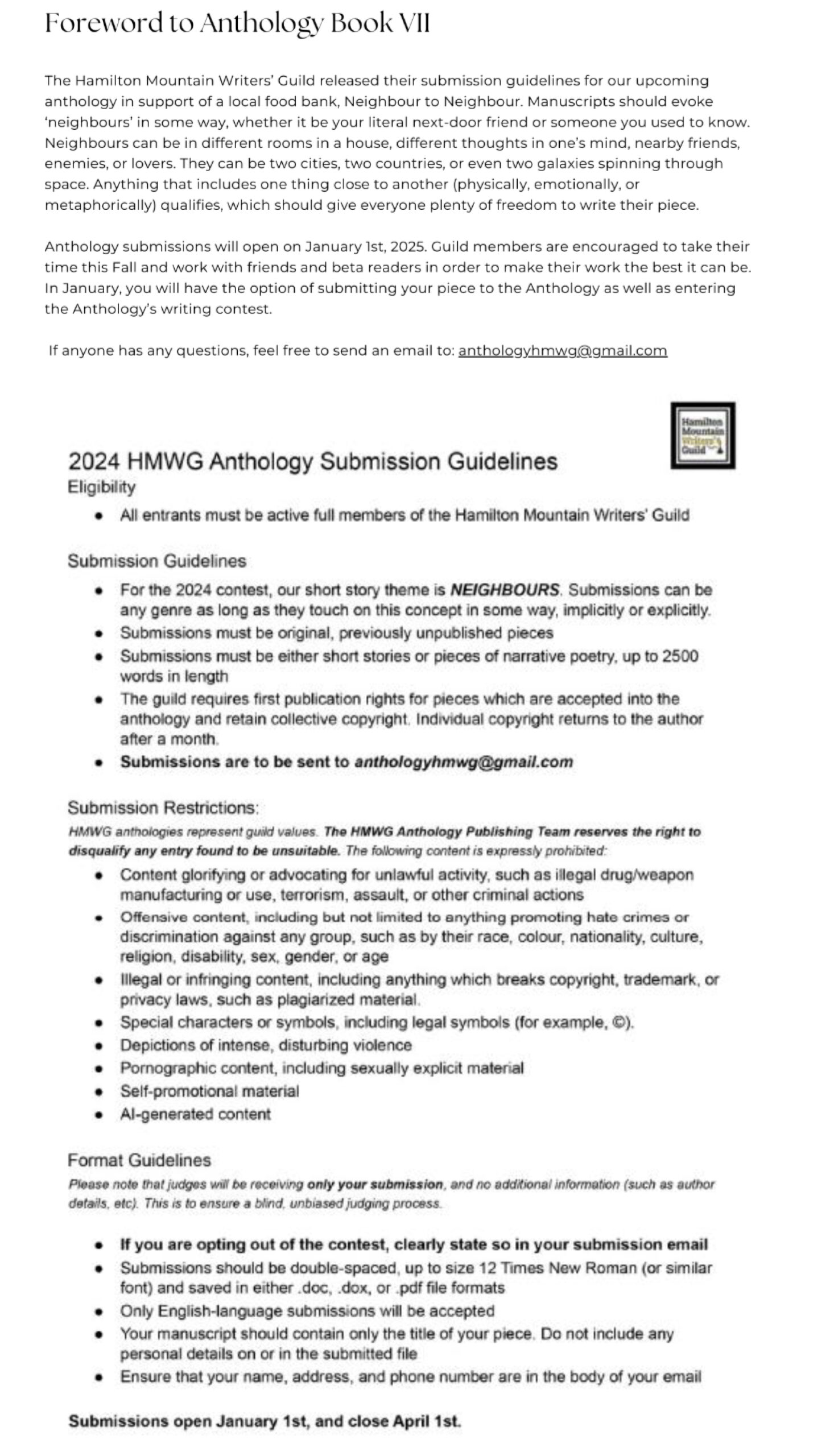Tuesday September 3, 2024
Anthology Book VII: Call for Editors
The Anthology Publication team is recruiting editors!
Starting in January, editors will be working closely with authors to improve submissions for the book’s publication. In practice, we expect to go back and forth between editors and authors multiple times to collaboratively polish manuscripts and make our final project as high quality as possible.
Prior professional editing experience is preferred, but not mandatory.
Once selected, the editing team will go through a couple of exercises before January, with the goal of getting some guided practice before submissions open.
If you are interested, you can reach out to the Anthology team at: anthologyhmwg@gmail.com
Please note that if you are accepted as an editor you will not be able to submit writing to the Anthology contest, although you can still submit writing to the book itself.
